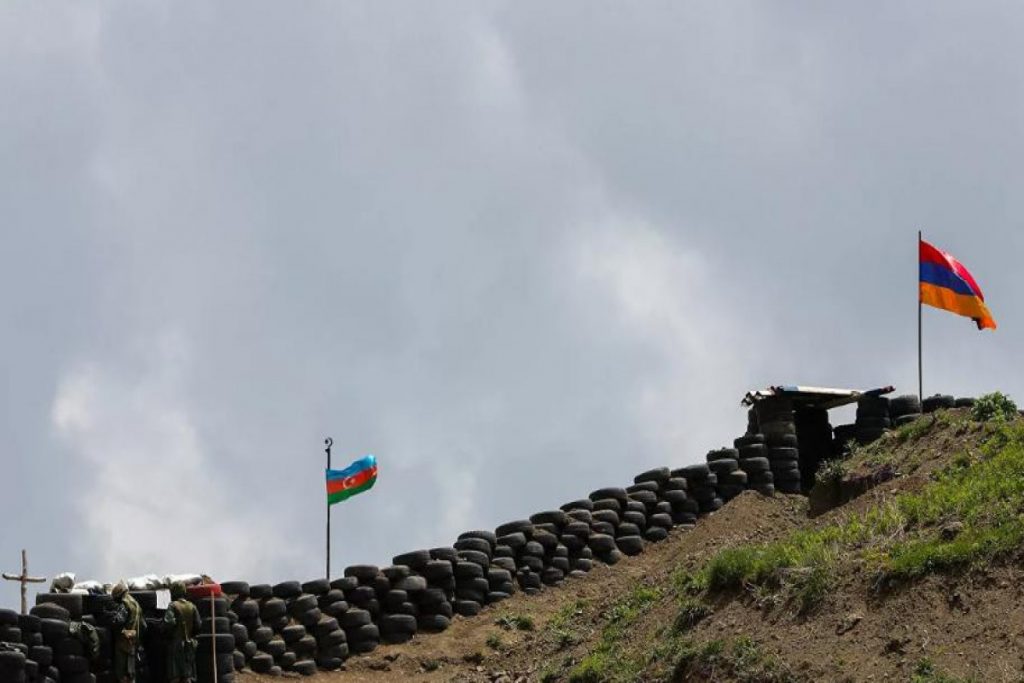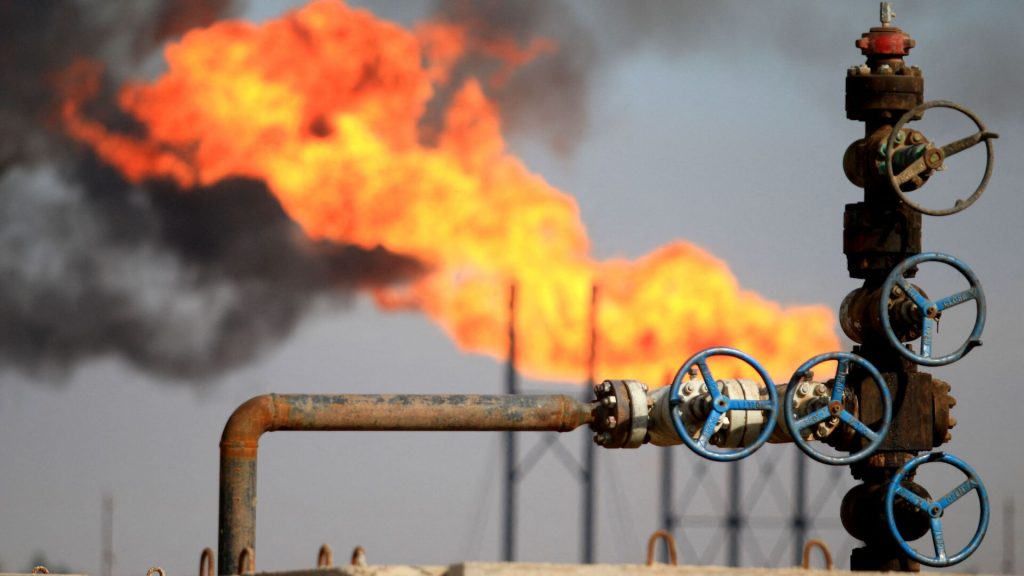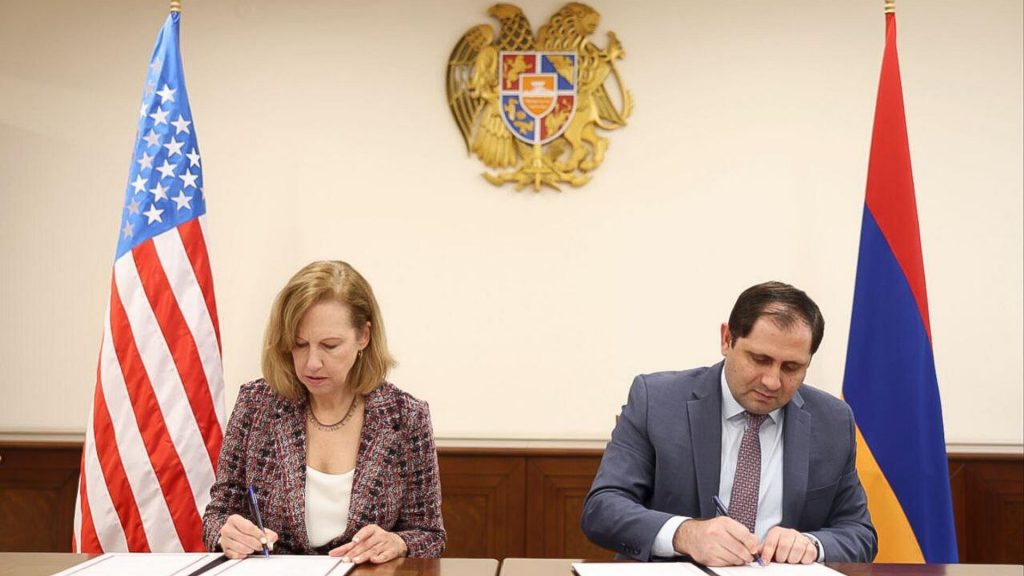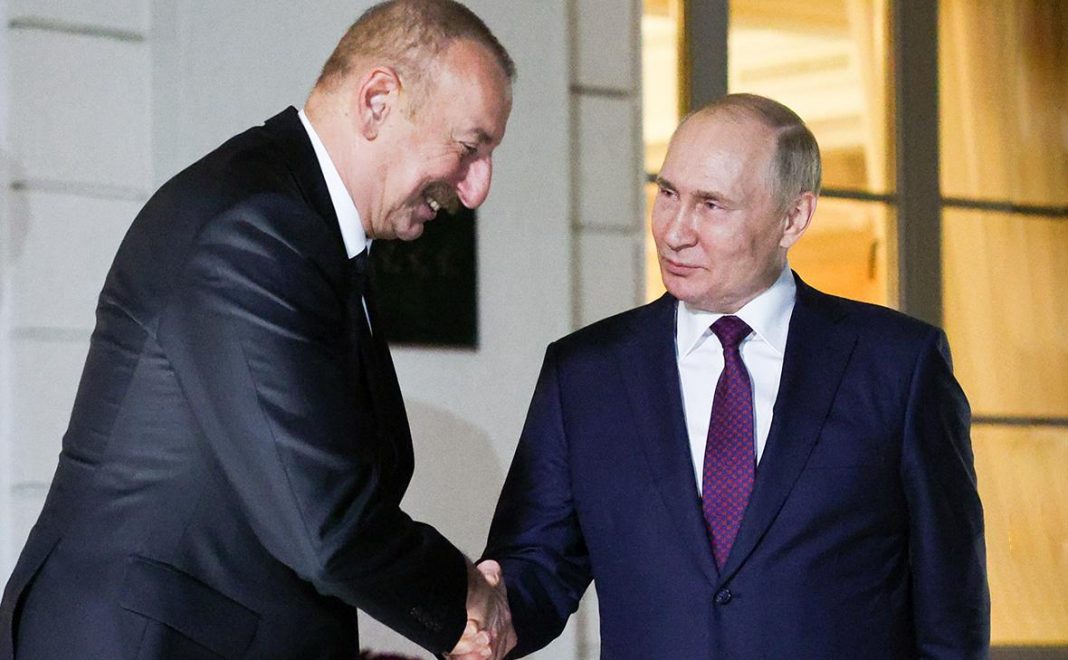Russian President Vladimir Putin paid a state visit to Azerbaijan on 19 August 2024, which is the highest category of diplomatic visits. At the end of the talks, the leaders of the two countries issued a joint statement. The communication between the two leaders looked quite warm and friendly, as Vladimir Putin put it: ‘in a warm and family atmosphere’. President of the Republic of Azerbaijan Ilham Aliyev several times emphasised friendly and even allied relations. An interesting nuance: President Aliyev, speaking about investments in the modernisation of an infrastructure facility, named the amount in dollars, and then corrected himself – ‘in the dollar equivalent’, apparently to please the ‘dear guest’.
The main statements of the parties concerned trade turnover, mutual investments, energy sphere, security in the region and Azerbaijani-Armenian settlement, transport corridor ‘North-South’, environmental sphere (shoaling of the Caspian Sea, support of the Russian Federation for Azerbaijan’s candidacy for the climate conference), international sphere (support at international platforms, in particular the UN), invitation of the Azerbaijani leader to the BRICS summit in Kazan in October this year. By the way, the next day Azerbaijan announced its application to join the organisation.
Both leaders placed special emphasis on humanitarian co-operation: education in Russian in Azerbaijan, cultural contacts, opening a branch of Moscow State University and Sechenov Medical University, establishment of a Russian-Azerbaijani university in Baku. The plan to jointly celebrate the 80th anniversary of the common victory in the Great Patriotic War was voiced as very important from the point of view of the ideology of the modern Russian state. Such emphasis on humanitarian sphere demonstrates that relations between Russia and Azerbaijan are more than just business.
It is impossible to understand the background of this meeting without analysing the Armenian-Azerbaijani conflict, as well as the positions of the participating countries, regional and global players.
The roots of the conflict between Armenia and Azerbaijan date back to the Soviet era. The territories of the two republics were divided in such a way that Azerbaijan included a region called Nagorno-Karabakh (in Armenian terminology Artsakh), populated predominantly by Armenians, and a region called Nakhichevan, populated by Azerbaijanis and part of Azerbaijan, but separated from the main territory of Azerbaijan by the territory of Armenia. With the collapse of the USSR, a number of territorial conflicts escalated, including this one. The first Karabakh war ended in 1994 with Armenia’s victory and the creation of the Nagorno-Karabakh Republic, which, however, was never recognised as independent by Armenia itself, nor was it incorporated into Armenia.
The most important milestone that defined the current situation was the Second Karabakh War in 2020. During those 25 years, the balance of power has radically changed (Azerbaijan’s military budget alone was larger than Armenia’s entire budget), and the conflict ended with Azerbaijan’s confident victory. The city of Shusha, the dominant height dominating the entire territory of Karabakh, was captured. There was only one shot left before the complete destruction of the Nagorno-Karabakh Republic, from which Armenians were saved only by the trilateral Armenian-Azerbaijani-Russian agreement, which envisaged the introduction of Russian peacekeepers. However, this final throw still occurred in 2022, Azerbaijan calls it ‘counter-terrorist operation’, sometimes the term ‘Third Karabakh war’ is used, as a result of which the Nagorno-Karabakh Republic ceased to exist from 1 January 2024.

The main regional players are the Russian Federation, Turkey and Iran.
Russia, with the outbreak of the Second Karabakh War, given its desire to maintain influence in both post-Soviet republics, as well as internal stability in Russia itself (due to the significant influence of both diasporas within the Russian Federation), found itself in a very uncomfortable position. Of course, the Kremlin was not happy about the strengthening of Turkey, Azerbaijan’s main ally in the region. The situation was aggravated by the fact that after the ‘Maidan’ in Armenia in 2018, and the coming to power, instead of the Karabakh clan friendly to Russia, the openly pro-Western government of comprador Nikol Pashinyan, the Russian Federation received a de jure CSTO ally (with a Russian military base in Gyumri), but a de facto hostile country.
Pashinyan’s government first of all started to conduct personnel purges and sometimes even open criminal cases against officials, politicians and businessmen oriented towards Russia. In Russia it looked like treachery, machinations of the West, and Armenia turned into a problem. Undoubtedly, in these conditions Ilham Aliyev, a strong secular Muslim leader from a good Soviet family, looked much more sympathetic. He took advantage of this, appearing on Russian television with the message ‘why do you need this “piglet” Pashinyan when there is a strong and reliable partner in my person, besides, the international law is for us’.
By the way, international law is indeed on the side of Azerbaijan. And despite all the Armenian grievances and accusations that Russia has betrayed them, the CSTO and Russia had no formal obligations to enter the war: de jure, no hostilities were fought against Armenia and on Armenian territory, but on the internationally recognised territory of Azerbaijan, much less against a separatist enclave not even recognised by Armenia itself. Russia managed to restore its status in the region thanks to its role as a mediator in the ceasefire, as well as the country that sent peacekeepers. Official Baku was most likely interested in this, as well. Its rather high subjectivity is based on the personal qualities of its leader, hydrocarbons and the ability to maintain a balance between allies. After all, despite the Azerbaijani-Turkish slogan ‘one nation – two states’, it is the counterweight in the person of Russia that is necessary for these states to be two in the future.
For Turkey it is certainly a victory, and its strengthening in the region, especially against the background of difficult relations with Russia and Iran in Syria. There is also some moral satisfaction, given the history of relations between Turks and Armenians. With the coming to power in Turkey of President Recep Tayyip Erdogan, Turkey has made a transition from a Kemalist, secular pro-Western Turkey to a Turkey with imperial ambitions based on neo-Ottomanism, a Turkey influencing Turkic peoples from the Uighurs in China and the peoples of Central Asia to the Crimean Tatars, Gagauz and Turkic peoples of Russia like the Bashkirs and Yakuts. Turkey claims to be the defender of Islam. It is quite likely, in the long term, the emergence of serious conflicts between Moscow and Ankara, they are very close and there are a lot of overlapping interests, the rich history of Russian-Turkish wars will not lie, but at this stage it is balanced by personal relations between the leaders, and large infrastructure projects such as the construction of Akkuyu NPP, South Stream, the supply of air defence systems C 400.
Iran has taken a very cautious stance in the conflict. On the one hand, it is strange to support a Christian, deeply pro-Western state in a conflict with Muslims, being a Muslim theocracy under Western sanctions. On the other hand, Azerbaijan actively co-operated with Israel. Thus, Israel was the largest supplier of arms to Azerbaijan, in addition, there were reports of co-operation in the field of intelligence exchange, and there were publications in the American press that Azerbaijan allegedly sold to Israel some abandoned airbases on its territory. Some experts expressed concern that the patriotic upsurge in Azerbaijan could destabilise the situation in Iran. The fact is that Azerbaijanis are one of the largest ethnic groups in Iran, there are more of them there than in Azerbaijan itself, by the way, even the head of state Rahbar Ayatollah Ali Khamenei is an ethnic Azerbaijani. And of course the strengthening of Turkey in the region is also not favourable to Iran.
The main emphasis in the European press regarding Putin’s visit is on the gas issue. The fact is that because of the anti-Russian sanctions imposed by the EU after the start of the war in Ukraine, Europe needs, if not an alternative source of natural gas, at least a fig leaf. It is for this purpose that the EU is interested in gas supplies from Azerbaijan. But, as BBC experts point out, South Stream does not have the necessary capacity, and Azerbaijan itself most likely does not have sufficient gas volumes, so there is no way without Ukraine and Russia.
And yes, in a commentary for Bloomberg, Ukrainian President Volodymyr Zelensky reported in July this year about negotiations on gas supplies from Azerbaijan. And on 20 July, the same Bloomberg reported that President Aliyev said that Ukraine and the EU have asked for gas supplies from Azerbaijan. European experts say that in fact, this is just a scheme to circumvent sanctions. It is, but apparently primarily for Europe and Ukraine. For Russia, this agreement is not so important, because the Kremlin understands that the Europeans will not go anywhere from the Russian ‘gas needle’ in any case, because they need gas, and there is no real alternative to supplies from Russia. And there is nothing wrong if, at the expense of the Europeans, the Russian Federation strengthens its co-operation with an important partner – Azerbaijan. In fact, this agreement is a fixation of Europe’s defeat in the sanctions war, and Azerbaijan got an opportunity to earn good money on saving the face of European partners. If we take into account the statement of the two presidents on increasing the production of river-sea tankers, this game can be played not only in the gas, but also in the oil sector.

Most likely, the key issue of this visit was another large-scale project – the North-South corridor from St. Petersburg to the Indian port of Mumbai (7.2 thousand kilometres). It was started as early as in 2000. But progress has been rather slow due to technical difficulties (building bridges and tunnels in mountainous terrain), as well as political difficulties. Much of the infrastructure is located and being built on Iranian territory, so on 20 June 2024, a 37-kilometre section of railway between the port of Caspian and the city of Resht was put into operation. Another 120 kilometres of railway to the city of Astara in northwestern Iran is under construction. Also, during a joint statement by the presidents of Azerbaijan and Russia, Ilham Aliyev voiced that the project infrastructure in his country is working well and new funds have been allocated for modernisation to increase the throughput capacity from 15 million tonnes per year to 30 million tonnes.
Some Russian analysts have already called this a victory for Russia in the ‘Great Game’ (the centuries-long standoff between Russia and Britain for control of middle Asia and India, as well as access to the Indian Ocean). In its analysis, the BBC described this as a Russian-Iranian project, which is needed because of insufficient shipping capacity on the Caspian Sea, and feared that it could be used for military supplies from Iran to Russia for the needs of the conflict in Ukraine. There is some underestimation here, the project is much bigger, and the weapons could also move in the opposite direction: given the tensions in the Middle East, this is very relevant, and the West tends to overestimate Russia’s dependence on Iranian supplies.
It is quite likely that despite this position in its media officialdom, London takes the threats associated with the opening of this corridor seriously. In this context, it can be assumed that Israel’s aggressive behaviour and its attempts to provoke a war with Iran, among other things, are aimed at disrupting the implementation of the North-South corridor, and have British roots. The fact is that it is typical for Russia to build geopolitical ties through large joint infrastructure projects: Nord Stream with Germany, Akkuyu NPP, South Stream with Turkey, Power of Siberia, Northern Sea Route with China. And the implementation of the North-South corridor can serve as a basis for rapprochement of the participating countries, up to certain political and defence alliances. This becomes especially relevant if we take into account that it connects the zones of two major conflicts (Ukraine and the Middle East). The importance of this project is underlined by the visit of the Secretary of the Security Council of the Russian Federation, Sergei Shoigu, to Iran on 6 August, when the Western media announced an Iranian attack on Israel every 48 hours in order to deter Iran from starting a war. What is interesting is that as a route perpendicular to China’s Silk Road, it is its rival and can be considered in a sense anti-Chinese. The West often likes to refer to Russia as China’s junior partner or even vassal, and the implementation of this project gives Moscow an opportunity to strengthen its position by creating an alternative in the form of India.
As for the countries of the region, we can most likely expect Azerbaijan’s rapprochement with Iran to the detriment of cooperation with Israel, especially against the backdrop of very harsh anti-Israeli rhetoric of their main ally Ankara in view of the events in the Middle East.
This situation is also quite interesting for Armenia. In the Armenian blogosphere, the gas component of the visit was mainly discussed, and statements were made that the visit was a harbinger of a new betrayal and a new war. In fact, Putin’s visit to Azerbaijan is also an opportunity for Armenia. From Azerbaijan’s point of view, territorial integrity has been restored, the conflict with Armenia is over, which means that relations can be restored. This is also supported by the fact that it was on Baku’s initiative that the issue of the Zangezur (in Armenian terminology Syunik) corridor, which runs through the territory of Armenia and connects the main territory of Azerbaijan and Nakhichevan, was removed from the agenda. This issue was the result of Azerbaijan’s victory in the 2020 war and has long been the main stumbling block in Armenian-Azerbaijani negotiations. A few years ago, Iran voiced the idea of a North-South corridor to the Black Sea via Armenia and Georgia. Apparently, during President Putin’s visit to Baku, Armenia’s participation in this project was discussed, which would be favourable for Yerevan in economic terms and could become a basis for restoring ties and establishing lasting peace in the region.
On the other hand, there are the interests of the Western countries. It is important to note the U.S. position voiced by James O’Brien, Assistant Secretary of State for European and Eurasian Affairs: ‘The countries of Central Asia are incredibly rich, but their only access to world markets is through Russia and China….. If we can open up a route that goes through Armenia or Azerbaijan, they will have access to world markets’. US Secretary of State Anthony Blinken’s visit to Kazakhstan in 2023 is also in favour of this position.

France is also trying to play its own game. Earlier it was reported about deliveries of French military equipment to Armenia. Apparently, France is trying to take revenge for its defeat in Africa. But if France could not help itself in Africa, can it help Armenia in any way? It can help to start a war, but not to win it.
In fact, Armenia is at a crossroads, and in order to make the right choice, it is necessary to take into account the experience of two other ‘post-Maidan’ states: Ukraine and Georgia. All of them are united by colour revolution, stagnation of statehood, war and annexation of territories. But the countries came out of the situation in different ways. Georgia was able to stop in time and, having lost two regions, did not lose Georgia. And after the Georgian Dream came to power it was able to start restoring its subjectivity and relations with its neighbours. Ukraine, on the other hand, continues to plunge into a crisis from which it will be increasingly difficult to emerge, even with the sustained support of Western partners.
Unfortunately, the negative scenario for Armenia looks more likely. This is evidenced by the downgrading of relations with the CSTO, military supplies from France, joint military exercises with the US, and huge revanchist sentiments in the country. In addition, Armenia’s ‘curse’, which preserves its geopolitical choice, is a huge and influential diaspora, about twice the population of Armenia itself, especially in the USA (oriented mainly towards the Democratic Party) and in France. Some consider this an advantage, but it is a tragedy when the fate of people living in a country is determined by people who do not live in it. In case of a negative scenario, a revanchist pro-Western anti-project will be built, similar to the Ukrainian anti-Russia project, with the risk of a new war, in which Armenia has a high chance of being defeated, and after replacing the political elites will be forced to join the North-South project.
Georgia is another risk zone and an opportunity for strengthening the West’s game. After the adoption of the law on foreign agents, a number of protests erupted across the country, but the ruling Georgian Dream held firm and the law came into force. In all likelihood, there will be another attempt to sway the situation during the upcoming parliamentary elections on 26 October. A certain warming of the situation is felt in the European press. Thus the main message of Deutsche Welle material on the topic of Georgian elections can be summarised as follows: ‘most likely Georgian Dream will win the elections and then Georgia will turn into Russia and you will all die and those who survive will be killed by the law on traditional family’.
As mentioned, the day after Putin’s visit, Azerbaijan announced its bid to join BRICS. Obviously, Turkey was not against such a decision. And now, a Bloomberg piece from 2 September reports that Turkey itself has also submitted the same application. Although this organisation is informal, it is still, in fact, the point of crystallisation of the alternative project to the Western one. In this context, considering NATO as one of the main pillars of Western globalism, it can be assumed that Ankara will come to the necessity to abandon its participation in the North Atlantic Alliance.
Analysing the results of Putin’s visit to Azerbaijan, as well as general political processes in the region, we can come to the following conclusions:
1. Russia is trying to build a mechanism to circumvent sanctions in the energy sector through the mediation of Azerbaijan;
2. It is extremely important for Russia to keep Iran from war with Israel because of the importance of the ‘North-South’ corridor. 3;
3. Moscow strengthens its position in relations with China, including at the expense of an alternative in the face of India;
4. Armenia has a chance to develop peacefully and establish relations with its neighbours, but most likely it will not use it, so there is a risk of new conflicts;
5. In the near future, we should expect Israel’s geopolitical influence on Azerbaijan to decrease in favour of Iran;
6. It is important for Georgia to hold its own during the parliamentary elections, preserving its position in the region and control over internal political processes.
7. The US is interested in creating an alternative route from Central Asia to the West to the North-South corridor, which creates a risk of destabilisation in the South Caucasus and Central Asia, primarily in Kazakhstan;
8. Turkey, due to its fundamental differences, will distance itself from the Western project.
Author: Sergey Koval


